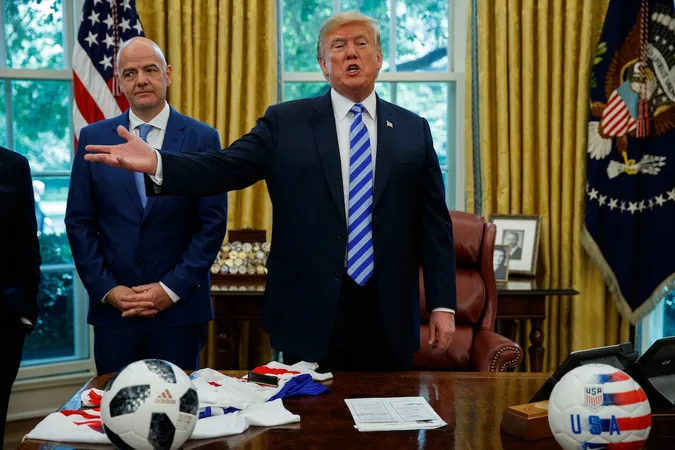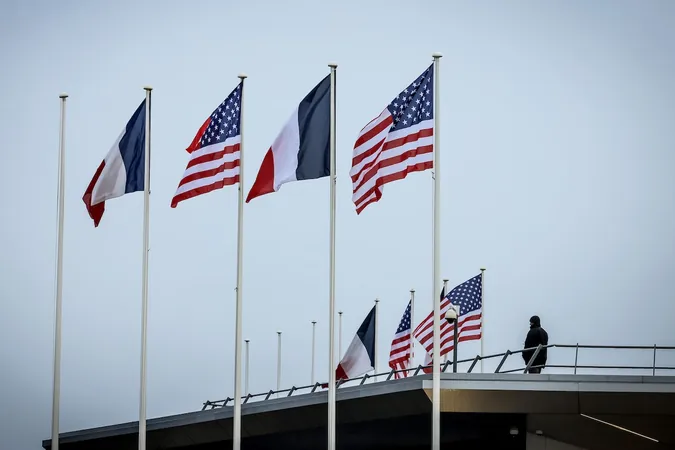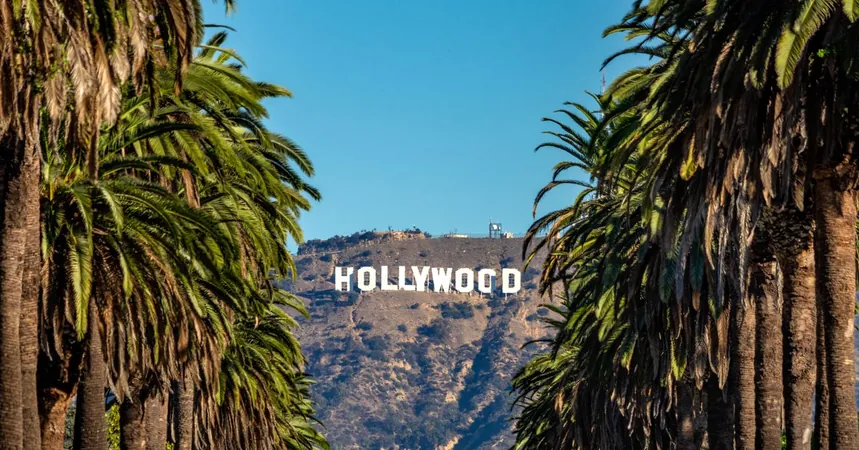
From Unity to Dissonance: The U.S.-Canada-Mexico World Cup Faces New Challenges Amid Tariffs and Political Tensions
2025-04-01
Author: William
Seven years ago, the joint bid by the United States, Canada, and Mexico to host the 2026 World Cup was celebrated as a symbol of North American unity. Back then, trade tensions and discussions of a border wall existed, but those issues were overshadowed by the strong economic and political alliances shared by these neighboring countries. Carlos Cordeiro, former president of the U.S. Soccer Federation, hailed the solidarity of the three nations, calling it a 'powerful message.'
Fast forward to today, with the World Cup just 15 months away, and the political landscape looks much different. President Donald Trump, having regained office, has reignited trade wars by imposing tariffs on imports from Canada and Mexico, raising questions about how these geopolitical tensions will impact the highly anticipated tournament.
The growing rhetoric around potentially making Canada the '51st state' adds another layer of complexity to the situation, igniting fears of strained relations that could affect World Cup logistics, fan attendance, and the overall atmosphere of the event. 'Tension’s a good thing,' Trump remarked during a recent Oval Office meeting with FIFA President Gianni Infantino. But not everyone shares this view; there is a palpable concern among fans and organizers about the implications of these political maneuvers on the world's most-watched sporting event.
With the U.S. gearing up to host other major global events such as the Club World Cup and the 2028 Olympics, the question remains: will international spectators feel welcome or be deterred by the current climate? While experts like Alan Rothenberg, who played pivotal roles in previous World Cups, believe that the allure of soccer will ultimately draw large crowds despite political issues, sentiments from around the globe are mixed.
The last two World Cups, held in Russia and Qatar, saw attendance soar above 3 million, and many expect similar interest for the 2026 event. Rothenberg asserts that passionate soccer fans are unlikely to be deterred by governmental tensions. Still, the possibility of protests against the U.S. could mirror the booing of the national anthem experienced during other sporting events in Canada.
Moreover, the immigration and visa policies enacted by Trump’s administration add a layer of uncertainty for international fans hoping to participate in the festivities. The ability to freely cross borders could be hindered, impacting not just fans but also team logistics. Despite concerns, Mexican government representative Gabriela Cuevas emphasized that the World Cup presents an opportunity for dialogue, despite the concurrent challenges posed by tariffs.
Sports economists have noted that logistics surrounding the event—particularly concerning border crossings—could become significantly more complicated if tensions escalate. As Victor Matheson, a professor at the College of the Holy Cross, highlights, the essential aspect for the World Cup is not merely the transport of goods, but rather the movement of people.
For many fans, like 29-year-old Mexican businessman German Camacho Pacheco, the love for soccer transcends political and economic concerns. In a country where soccer is akin to religion, the hope is that the excitement of the World Cup will overshadow any ongoing trade disputes unless tensions escalate toward more severe confrontations.
With the World Cup scheduled to be hosted across 16 cities from June 11 to July 19, 2026, everyone is left wondering: will the enduring passion for soccer unite or divide the nations at the heart of this ambitious event? As the date approaches, fans and organizers alike hope for a tournament marked by spirit and camaraderie rather than discord.









 Brasil (PT)
Brasil (PT)
 Canada (EN)
Canada (EN)
 Chile (ES)
Chile (ES)
 Česko (CS)
Česko (CS)
 대한민국 (KO)
대한민국 (KO)
 España (ES)
España (ES)
 France (FR)
France (FR)
 Hong Kong (EN)
Hong Kong (EN)
 Italia (IT)
Italia (IT)
 日本 (JA)
日本 (JA)
 Magyarország (HU)
Magyarország (HU)
 Norge (NO)
Norge (NO)
 Polska (PL)
Polska (PL)
 Schweiz (DE)
Schweiz (DE)
 Singapore (EN)
Singapore (EN)
 Sverige (SV)
Sverige (SV)
 Suomi (FI)
Suomi (FI)
 Türkiye (TR)
Türkiye (TR)
 الإمارات العربية المتحدة (AR)
الإمارات العربية المتحدة (AR)